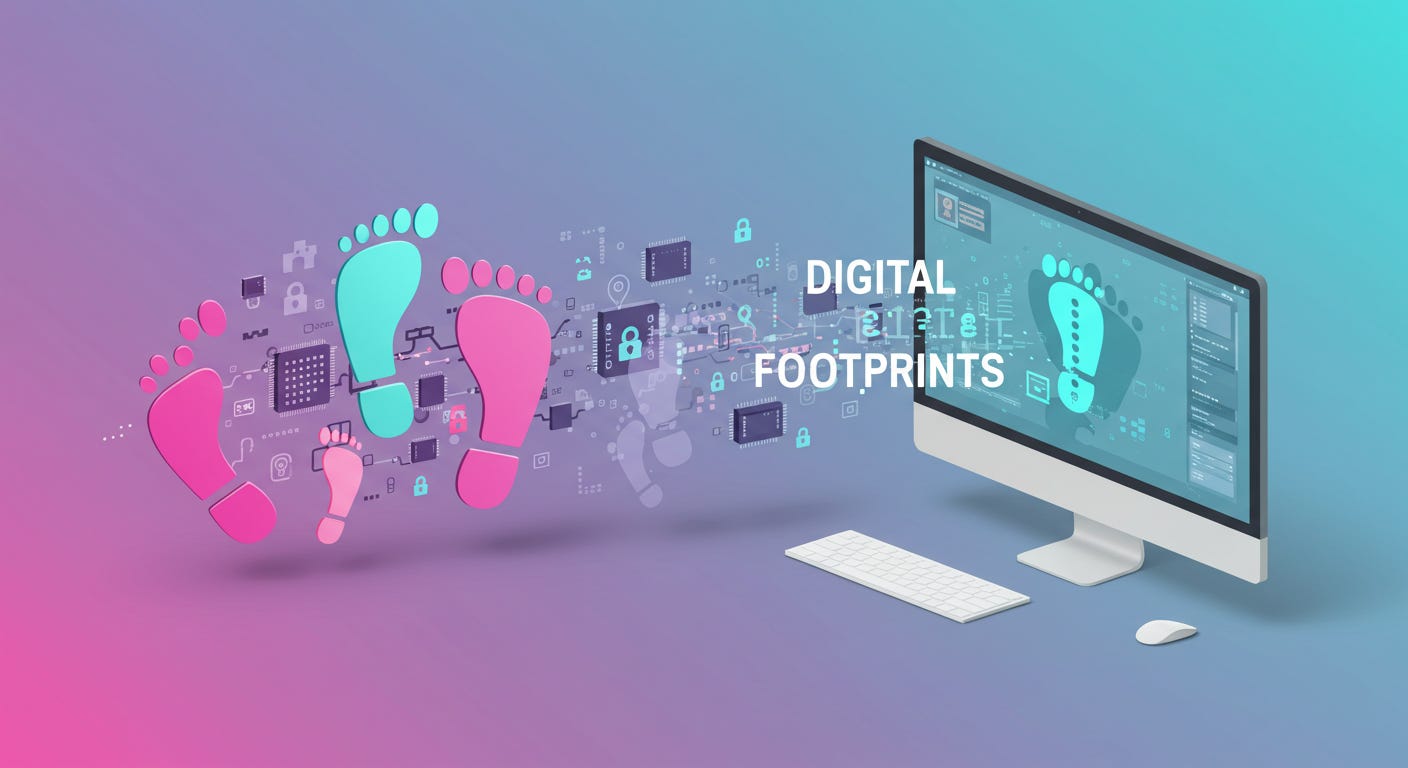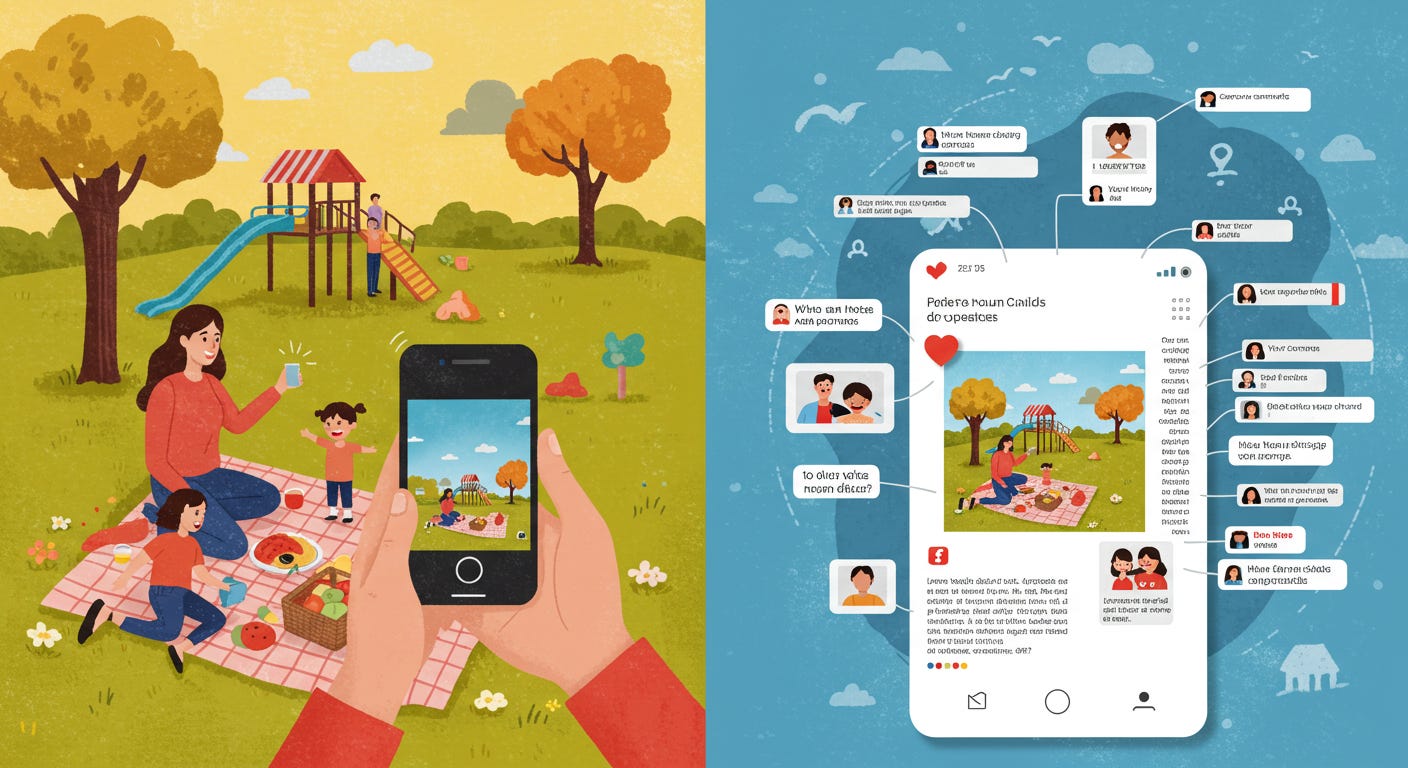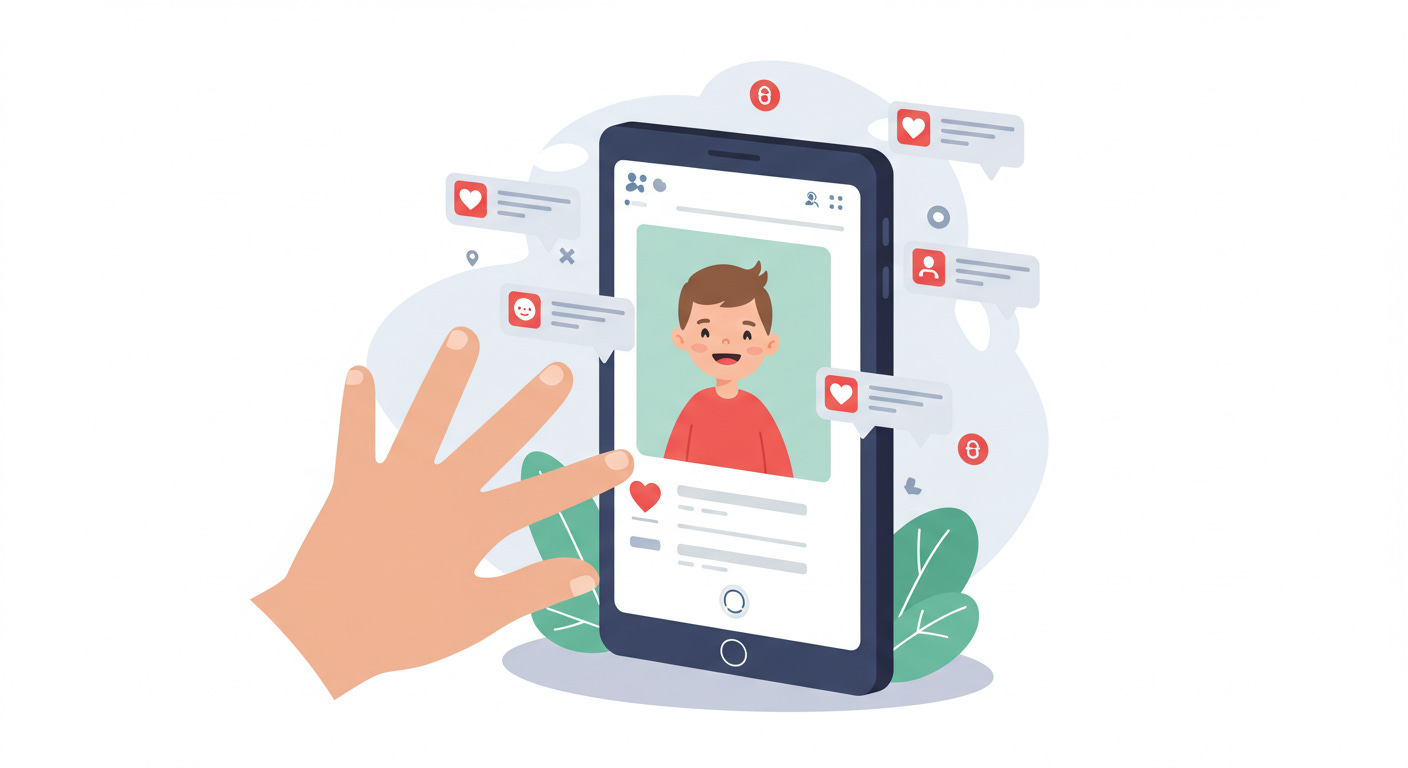The Hidden Dangers of Posting Your Children on Social Media
What begins as innocent sharing can expose children to risks that extend far beyond the digital world.
Editor’s Note:
Dear Folks,
In today's sharing culture, parents face a unique challenge: balancing the joy of sharing family moments against the potential risks of creating an online presence for children who can't yet consent. What begins as innocent sharing can expose children to risks that extend far beyond the digital world.
Hopefully, you will find this guide help you when and what to promote online in social media.
Lv,
Dottie & Larry
Digital Footprints Begin Before First Steps
Today's children have digital footprints before they can even speak. Many have hundreds of photos shared online before kindergarten, creating a digital presence they never agreed to. Unlike the family photo albums of previous generations, these digital images are:
Permanent and difficult to remove
Easily copied and reshared without permission
Accessible to people far beyond trusted family members
Often tagged with location data
Potential sources for facial recognition technology
When Innocent Photos Become Tools for Predators
Traffickers and predators actively search social media for potential victims. The information parents share can provide dangerous intelligence:
Regular locations a child visits (schools, activities)
Home addresses and neighborhoods
Family routines and schedules
Names of family members and pets (often used as passwords)
Schools and classroom teachers
Vacation plans indicating when homes will be empty
This information helps predators build profiles of children, establish false connections ("I know your mom, she sent me"), and identify vulnerable targets.
Identity Theft Starts Early
Children make perfect targets for identity theft because parents rarely monitor their credit, and theft may go undetected for years. When you post birthdays, full names, and identifying information, you're handing pieces of the puzzle to identity thieves.
The consequences often emerge years later when children apply for student loans or credit cards, only to discover their credit was damaged by accounts opened using their stolen information.
The Psychological Impact
As children grow, they develop their own sense of privacy. Images parents found adorable—bath time photos, embarrassing moments, tantrums—can become sources of extreme embarrassment or bullying material as children enter school.
A child's mental health can suffer when they discover years of their life have been documented without their input. This realization can damage parent-child trust and a child's developing sense of personal boundaries.
Digital Kidnapping
"Digital kidnapping" happens when strangers save children's photos from social media and repost them, claiming the children as their own. While sometimes just role-playing, this practice can take disturbing turns:
Photos appearing on fake adoption websites
Images appearing on inappropriate sites
Children's faces being digitally altered
Once images are shared, you lose control over where they end up.
Parents as Digital Role Models
Children learn by watching how freely you share your own life online. Before posting, ask yourself: "Do I want my child to share as freely as I do when they become teenagers?"
When you document every moment or share personal family details, you normalize oversharing. Children internalize what they see you doing, not just what you tell them about privacy.
As children enter their social media years, they often mimic your sharing patterns. The danger is that teens lack the judgment to recognize how this information could be used against them.
The Information Arsenal: How Oversharing Arms Predators
While you worry about what you post about your children, you might overlook what they're sharing about your family. By the time a trafficker initiates contact, they often possess an alarming catalog of family information from a child's social media.
Traffickers collect details children post about:
Family arguments and tensions
Marital issues or infidelities
Embarrassing family situations
Personal rule-breaking
Financial problems or successes
Parenting styles and family dynamics
This intelligence becomes powerful ammunition. When you try to locate or recover your child, traffickers are prepared to exploit your family's vulnerabilities. They villainize the strongest parent while manipulating more vulnerable family members, operating with the advantage of knowing your family's secrets—shared online by your child and observed through your own social media.
This psychological warfare makes recovery efforts much harder. Parents find themselves fighting an adversary who knows their weaknesses and has positioned themselves as a protector in the child's narrative.
Finding Middle Ground: Safer Sharing Practices
For parents who choose to share, consider these precautions:
1. Audit Privacy Settings Regularly
Limit who can see your posts (friends only, not public)
Turn off location tagging on photos
Remember that privacy policies change frequently
2. Be Selective About Content
Avoid posting identifiable locations like schools
Never share full birth dates, addresses, or identifying details
Consider whether the image shows your child in a vulnerable position
Ask: "Would my child thank me for sharing this in 10 years?"
3. Explore Alternatives
Use private photo-sharing apps with invited family only
Create password-protected digital albums
Share printed photos with relatives
Use group texts or emails with trusted recipients
4. Establish Consent Early
As children grow, ask permission before posting
Respect when they say no
Let them review images before posting
Teach them about digital boundaries
Teaching Consent Through Example
How we handle our children's images provides their first lesson in consent. When we ask, "Can I post this picture of you?" we teach them their opinions matter and they have agency over their image.
This early education in consent shapes their future understanding of personal boundaries—lessons that extend far beyond social media.
Are We Being Overly Cautious?
It's fair to ask: are concerns about sharing children's photos sometimes overblown?
Millions of parents share family photos daily without incident. For families separated by distance, social media offers connection that would have been impossible in previous generations. Grandparents can watch grandchildren grow despite living far away.
Some experts argue for perspective:
Most shared photos never attract malicious attention
Most parents already exercise reasonable caution
Technology platforms have improved protections
The benefits of connection may outweigh potential risks
Some researchers suggest that while caution is warranted, parents should focus on thoughtful sharing rather than complete avoidance.
For many parents, keeping children entirely off social media feels impractical. Teaching children to navigate online spaces responsibly may be more valuable than attempting to keep them completely offline.
The Balance Each Family Must Find
There's no universal right answer about posting children's images online. Each family must weigh the connection social media provides against the potential risks.
What matters most is making this decision consciously considering not just today's cute moment but its future implications.
Perhaps the most useful question isn't simply "Should I post this?" but "Who benefits from this sharing, and at what potential cost?"
In our increasingly connected world, the most balanced approach combines thoughtful caution with recognition of social media's benefits—careful discretion rather than either unfiltered sharing or complete digital absence.








